Project Description
Prize Winners 2000
Honorary Prize
Daniel Vernet
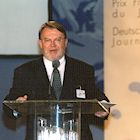
Daniel Vernet
Daniel Vernet served “Le Monde” as a foreign correspondent in Bonn from 1973 to 1977, but the stations of his journalistic career also include the world cities Moscow (1977-81) and London (1981-83). Today, the 55-year-old supervises the foreign department of France’s leading daily, for which he also authors comments on international politics and coordinates the cooperation with papers abroad.
Vernet was honoured for his continuous dedication to improving and deepening Franco-German relations.
Television Prize
Mitja Rietbrock / Michel Anglade
„Un mur dans la tête“
France 3
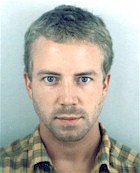
Mitja Rietbrock
Mitja Rietbrock is only 28, but already able to look back on an eventful career: After his studies in Paris and Tours, he attended the French journalism school in Lille and has been working as an editor and cameraman since 1997.
Living in Marseille since 1998, he almost exclusively works for French channels. In cooperation with his colleague Michel Anglade, he produced this year’s winning entry “A Wall in the Heads” whose “vivid and realistic portrayal” was commended by the jury. With a great deal of personal engagement, the Franco-German team of journalists describe winners and losers of reunification – the wall in the heads – for a French audience.
Straight from the operating theatre to the viewfinder: Michel Anglade had worked as a doctor for several years before attending the French school of journalism in Strasbourg in 1991. The 43-year-old TV journalist has been working for France’s major channels as a freelance author, cameraman and photojournalist ever since. He often has his finger on the pulse of the times in doing so, reporting political tensions and military conflicts from on the ground.
Television Prize – Short Reportage
Véronique Barondeau / Andrea Fies
„RU 486 – Die Abtreibungspille“
ARTE

Véronique Barondeau
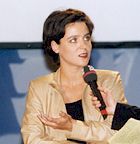
Andrea Fies
The French journalist Véronique Barondeau and her German colleague Andrea Fies showed this year’s television jury how Franco-German cooperation can work. Their ARTE feature about “RU 468 – the Abortion Pill” in Germany was most of all honoured for the “cinematic and journalistic realization of a complex issue and its Franco-German background”.
Before joining ARTE, Andrea Fies read general rhetoric, Romance studies and German in Tübingen and Paris. Véronique Barondeau studied history at the University of Strasbourg, where she also attended the school of journalism.
The two have been cooperating for approximately two years, jointly producing features for the Franco-German news magazine “ArteInfo”.
Radio Prize
Benoît Collombat
„Allemagne : Un mur dans les têtes”
France Inter

Benoît Collombat
Benoît Collombat won over the jury with his reportage “Germany: The Wall in the Heads” in the France Inter series “Interception”: a “vivid and successful radiophonic reconstruction of the moods and opinions occasioned by the 10th anniversary of the fall of the Berlin Wall”.
To make his documentary as authentic as possible, the 30-year-old graduate of the school of journalism in Lille met representatives from all social strata, travelling to Rostock, Berlin and Leipzig for this purpose.
Benoît Collombat has been working for the radio for ten years. He was most of all able to gather experience at radio stations abroad such as Radio Canada, Radio Suisse Romande or RTBF (Brussels).
Print Media Prize
Dr. Jochen Hehn
„Das Ende von ‚Weiter so‘“
Die Welt
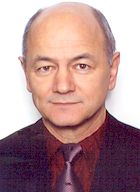
Dr. Jochen Hehn
Dr. Jochen Hehn is French correspondent for “Welt”. The 56-year-old sinologist who has been writing for Axel Springer’s flagship publication since 1984 was awarded the prize for his article “The End of ‘Carry On'” published on 22 January 2000.
The members of both the preliminary and main juries had clearly spoken in favour of the contribution which “vividly describes how the French are suddenly, upon the latest oil disaster, rediscovering their ‘eco-conscience’ after having made fun of the Germans’ environmental awareness for decades”.
Jochen Hehn lives and works in Paris, where he has been able to keep close to Far Eastern cultures in culinary terms, at least, in the 13th arrondissement: Beijing and Hong Kong, but also Vienna and Turkey number amongst the most impressive stations of his correspondent career.
Special Prize of the ASKO Europa-Stiftung – Television Category
Günter Ederer
„Schocktherapie. Wie die Hoechst-Manager ihren Konzern zerschlagen“
Hessischer Rundfunk

Günter Ederer
With his feature “Shock Therapy. How Hoechst Managers are Dismantling their Corporation”, the economic journalist and television author Günter Ederer affords an unusual peek behind the scenes of a gigantic business coup.
The Hessian journalist not only shows winners and losers in his report, but also “how differently German and French mentalities respond to such developments”. In its verdict, the jury most of all commended the detailed and up-close working methods of the film producer, who has been self-employed since 1990.
After 1984, Günter Ederer is now being awarded the Franco-German Journalism Prize for a second time for his reportage shown by Hessischer Rundfunk.
Special Prize of the ASKO Europa-Stiftung – Print Media Category
Harald Schultz
„Angriff der Nukleokraten. Der französische Stromriese EDF will den deutschen Markt knacken“
Die Woche
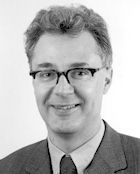
Harald Schultz
In his article “Attack of the Nucleocrats. The French Power Giant EDF Wants to Crack the German Market”, published in “Woche” on 15 October 1999, Harald Schultz dedicates himself to the “cut-throat competition between France and Germany for the no. 1 business location”.
The 41-year-old journalist from Hanover studied economics and politics in Hamburg and Paris before attending the school of journalism in the former. Having reported from Paris as a French correspondent of “Woche” for several years, he has now moved to the federal capital and is writing for the business journal “Focus Money” there.
Special Prize of the ASKO Europa-Stiftung – Television Category
Dr. Axel Bornkessel
„Napoleon und die Deutschen: Ein Volk befreit sich“
Norddeutscher Rundfunk
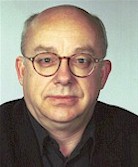
Dr. Axel Bornkessel
The Franco-German Cultural Council is his year honouring the freelance filmmaker Dr. Axel Bornkessel for his NDR feature “Napoleon and the Germans – A People Liberates Itself”. In it, the 57-year-old dedicates himself to the known and unknown repercussions of the French statesman and commander’s presence on German soil. The jurors described the reportage as a “TV-compatible amble into history”.
After studying German, Romance studies and theatre science, Axel Bornkessel worked as a dramaturgist for theatres in Bremen and Düsseldorf. Culture and history number among his favourite subject areas.
Special Prize of the ASKO Europa-Stiftung – Radio Category
Sven Rech
„Lothringen – eine Sinfonie“
Saarländischer Rundfunk
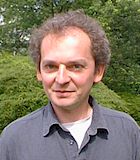
Sven Rech
The Saarlander Sven Rech ‘composed’ “Lorraine – A Symphony”, an “artistic and bilingual feature that follows the strict rules of this musical piece”: In the three parts Andante, Fugue and Scherzo, the 35-year-old allows language, vocal and noise elements to merge.
After his studies at Saarland University, Sven Rech completed a traineeship at Saarländischer Rundfunk, where he has been producing a great number of features and short reports for the radio and television ever since. This is already the third Franco-German Journalism Prize he has won.
Prize of the Franco-German Youth Office
Ann-Catherine Cavalli
„Tandem oder ‚Ménage à trois‘? 40 Jahre ostdeutsch-französische Beziehungen im Rückblick“
Radio France Internationale
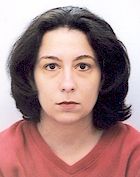
Ann-Catherine Cavalli
Ann-Catherine Cavalli left her studies in Leipzig in 1992 and moved her residence to Paris. No wonder then that her radio feature “Tandem or ‘ménage à trois’?” relates to the issue of Franco-German relations over the last 40 years. In the process, the 31-year-old Franco-German worked “through a heretofore neglected aspect of Franco-German relations”. Her engagement was rewarded with the Special Prize for continuing to delve into this subject.
Ann-Catherine Cavalli is an editor in the Franco-German editorial team of Radio France Internationale. She has won the Special Prize of the ASKO Europa-Stiftung before in 1998.
Advancement Award
Bernhard Hentschel
„Kommando Völkerfreundschaft“
Südwestrundfunk
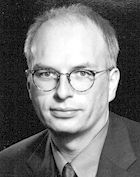
Bernhard Hentschel
For SWR correspondent Bernhard Hentschel, his competition entry’s subject broke no new ground: The native Landauer was drafted by the Bundeswehr from 1982 to 1983, doing his military service in a telecommunications unit in Koblenz.
His report “Commando Friendship of Nations” about the Franco-German Brigade on the occasion of its 10th anniversary “goes far beyond the military aspect and treats the subject in a lively and skilful manner”, as the jury verdict has it.
In his reportage, the 37-year-old Franco-German is most of all interested in the intercultural dimension of this binational military unit where superiors and comrades often don’t share the same language.
The Germanist has meanwhile moved his ‘personal planning HQ’ to Constance, where he has been working for Südwestrundfunk as a television correspondent since 1998.
Special Mention – Television Category
Anne Worst
“Kollaborateure unterm Hakenkreuz – Pétains Frankreich”
Norddeutscher Rundfunk
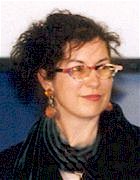
Anne Worst
Jean-Marc Surcin received a Special Mention for his reportage “The Last of the War Veterans”, shown by France 2 in the series “Lignes de Vie”. It is part of his great merit to have given a voice to some of the last survivors of the First World War – men who faced each other in bloody battles 86 years ago. The jury commended the film as a “commemoration of the past and warning for the future”.
Jean-Marc Surcin is 36 and lives in Paris. In his career as a TV reporter, he has covered a wide range of different areas already: his specialities include sports reports as well as historical and geographical documentaries.
Special Mention – Print Media Category
Jean-Marc Surcin
“Les derniers de la ‹ der des ders ›”
France 2
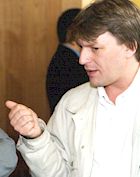
Jean-Marc Surcin
Jean-Marc Surcin received a Special Mention for his reportage “The Last of the War Veterans”, shown by France 2 in the series “Lignes de Vie”. It is part of his great merit to have given a voice to some of the last survivors of the First World War – men who faced each other in bloody battles 86 years ago. The jury commended the film as a “commemoration of the past and warning for the future”.
Jean-Marc Surcin is 36 and lives in Paris. In his career as a TV reporter, he has covered a wide range of different areas already: his specialities include sports reports as well as historical and geographical documentaries.
Special Mention – Print Media Category
Jean Tromeur
“Germany Ten Years after the Fall of the Wall”
Le Progrès de Cornouaille
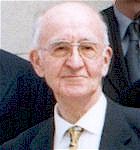
Jean Tromeur
As it is not matter of course for a regional Breton paper to report comprehensively about the consequences and repercussions of German reunification in a four-part series, the jurors of the Print jury rewarded this engagement with a Special Mention. At the award ceremony in Berlin, 78-year-old Jean Tromeur accepted his document on stage with two further prize winners.
Jean Tromeur writes regularly for “Le Progrès de Cornouaille”, a regional paper that has been in existence for over 100 years.

